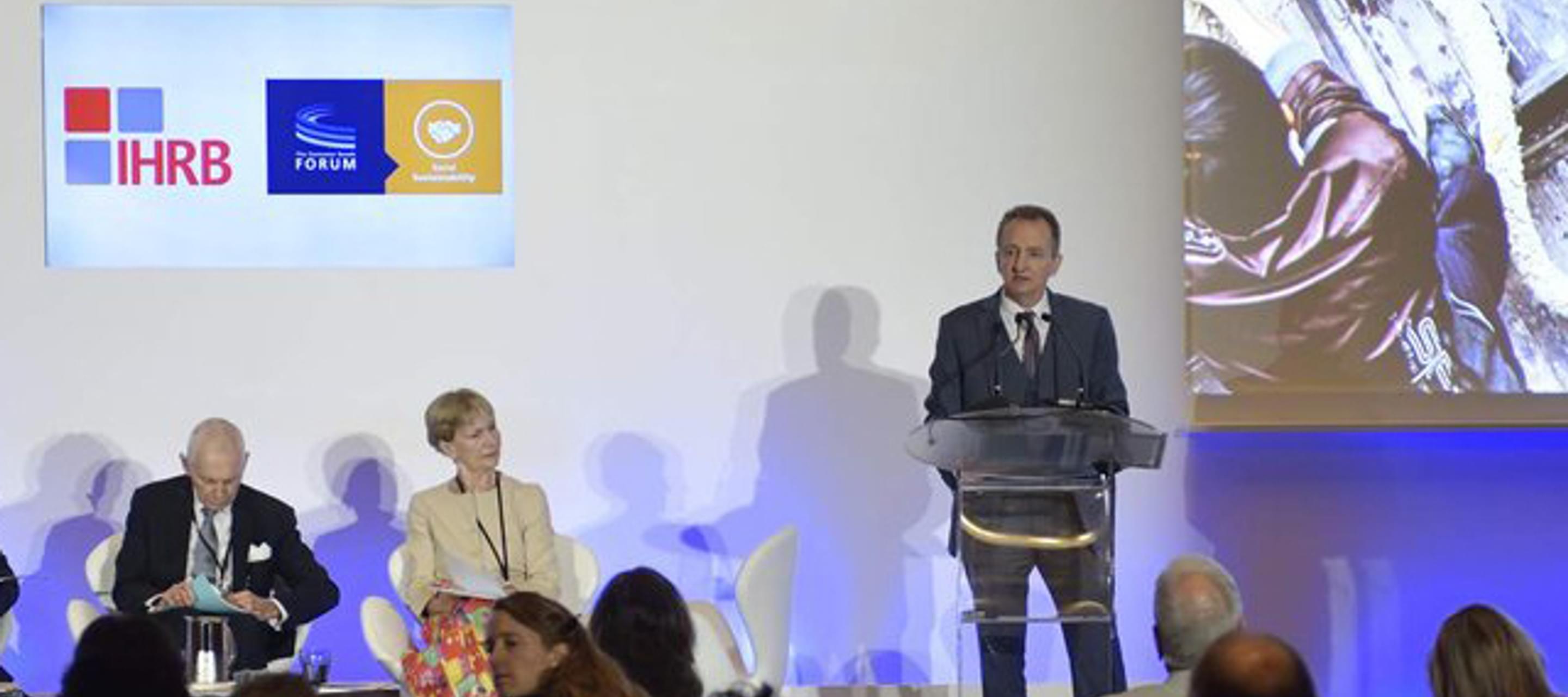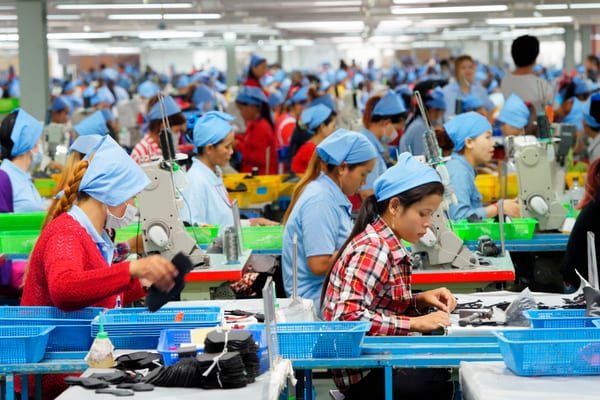Mars Inc CEO Grant Reid Addresses 2018 Global Forum on Responsible Recruitment and Employment
10 July 2018

The 2018 Global Forum on Responsible Recruitment and Employment took place on the 11th-12th June 2018 in Singapore.
Hosted by IHRB and Consumer Goods Forum, with partners Humanity United, this second annual dialogue brought together global brands, suppliers, recruitment agencies, governments, and NGOs to examine the challenges of recruiting migrant workers and how implementing ethical recruitment is vital in protecting workers from modern slavery as well as ensuring sustainable and efficient business operations.
Grant F Reid, CEO and President of Mars Incorporated, joined a high level panel alongside Fortescue Metals Group CEO Andrew Forrester and Director General of the International Organization for Migration William Lacy Swing, moderated by IHRB Advisory Council Member and head of China Dialogue Isabel Hilton.
"Thank you to the Consumer Goods Forum and the Institute for Human Rights and Business for organizing this important event and inviting me to take part.
Mars is proud to have co-chaired the forced labor work at CGF for the past three years, and to have joined the Institute’s leadership group last year.
And, I’m pleased to be here in a new role as co-sponsor of the Consumer Goods Forum’s sustainability pillar. It’s a privilege to carry on the work of Paul Polman of Unilever, and Steve Rowe of Marks & Spencer, and to partner with the world’s leading consumer goods companies on becoming a more sustainable industry.
I’m also here today as CEO of Mars, Incorporated – a global, family-owned company that believes success isn’t just defined by profitability and quarterly returns, but rather by long-term, purpose-led value creation, trusted brands, loyal Mars associates, and practices and policies which not only respect, but advance human rights and the environment.
That manifests in a number of ways, including a $1 billion commitment to our Sustainable in a Generation Plan, which includes improving the working lives of one million people in our supply chain.
At the heart of this Plan is a shift in our focus beyond the operations which we control, into the extended global supply chain that serves as the engine of all businesses. Because that extended supply chain is broken.
For example, the agricultural supply chains that depend on the hard work of farmers and fishermen – are not serving these people well. They aren’t providing universal opportunities to earn a decent living, and as all of you know, many are vulnerable to human rights risks.
That doesn’t serve the business community well either. These conditions put at jeopardy the supply of reliable, high-quality and well-priced materials on which most CGF member companies depend.
I’m not suggesting that actions haven’t been taken by the very people in this room. But, I think you’d agree that efforts to date have not put us on a trajectory of success.
I believe, in part, because we have not come together as effectively as we can to tackle these complex problems. Collaboration and action were major themes when, three years ago, the Consumer Goods Forum identified eliminating forced labor in our operations and supply chains as an absolute priority, and we decided to come at the problem differently.
This new approach to change is about action and impact at scale. It’s about engaging all stakeholders… and putting the interests of vulnerable workers first.
An important output of this focus at CGF is the identification of the most common and problematic workplace practices that contribute to forced labor. These three Priority Principles are powerful in their simplicity:
- Every worker should have freedom of movement.
- No worker should pay for a job.
- No worker should be indebted or coerced to work.


